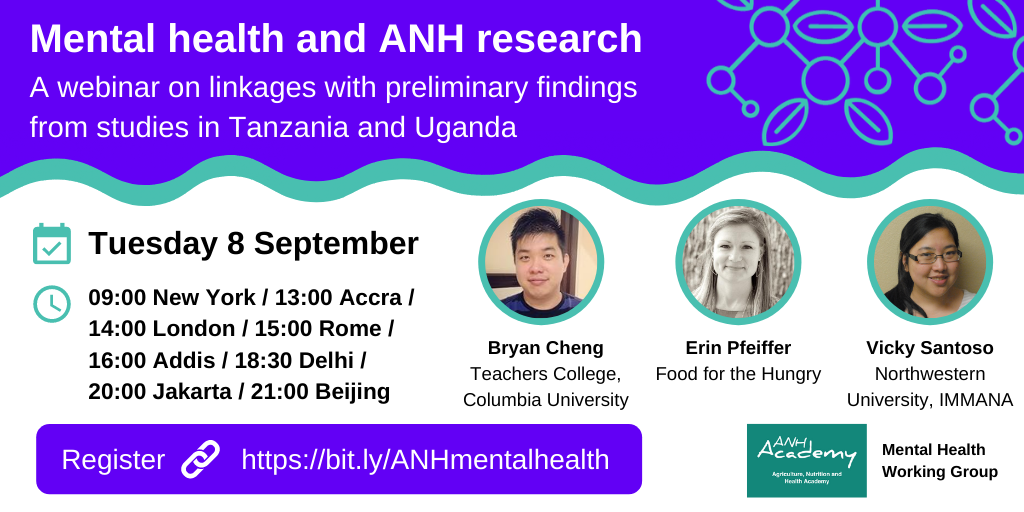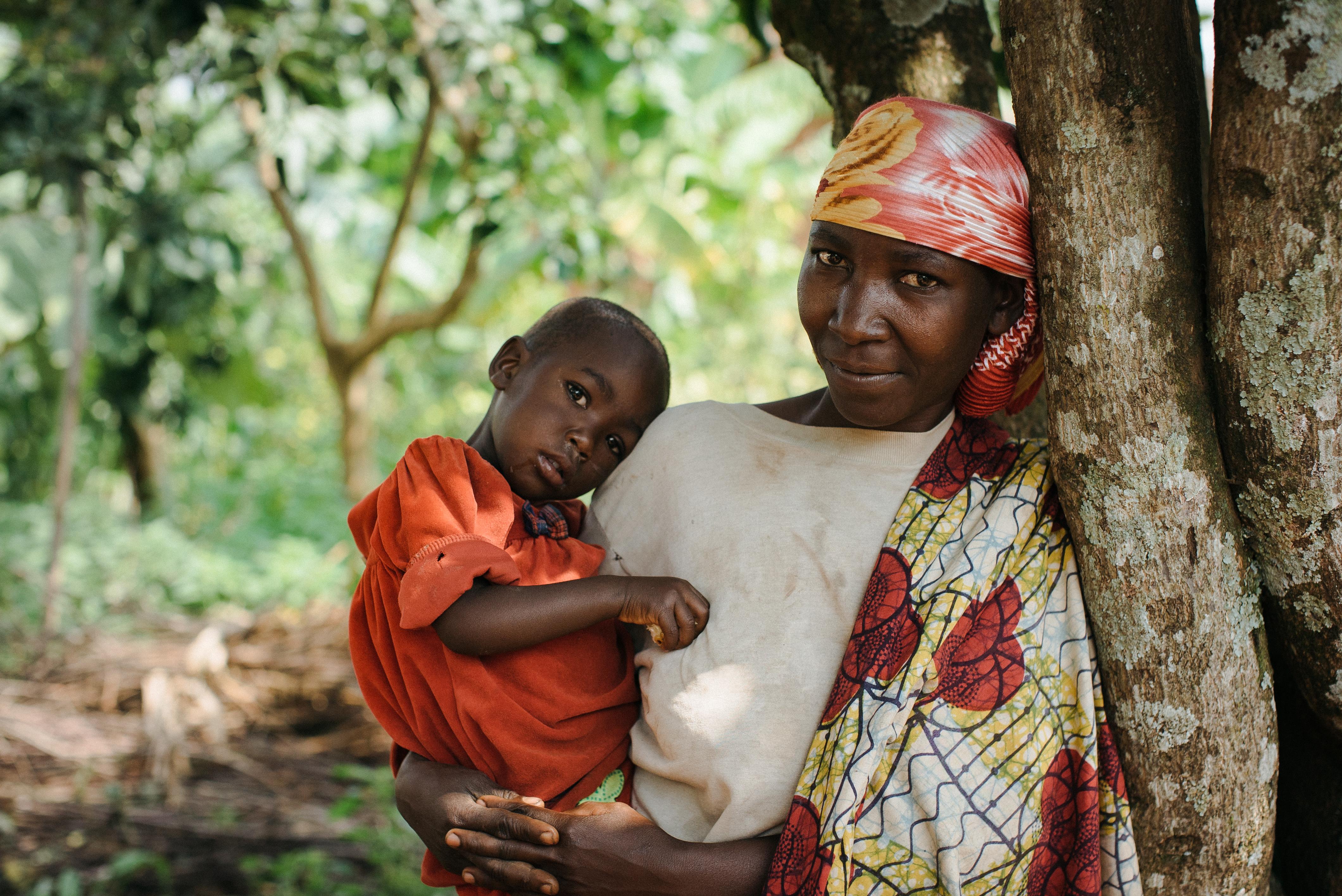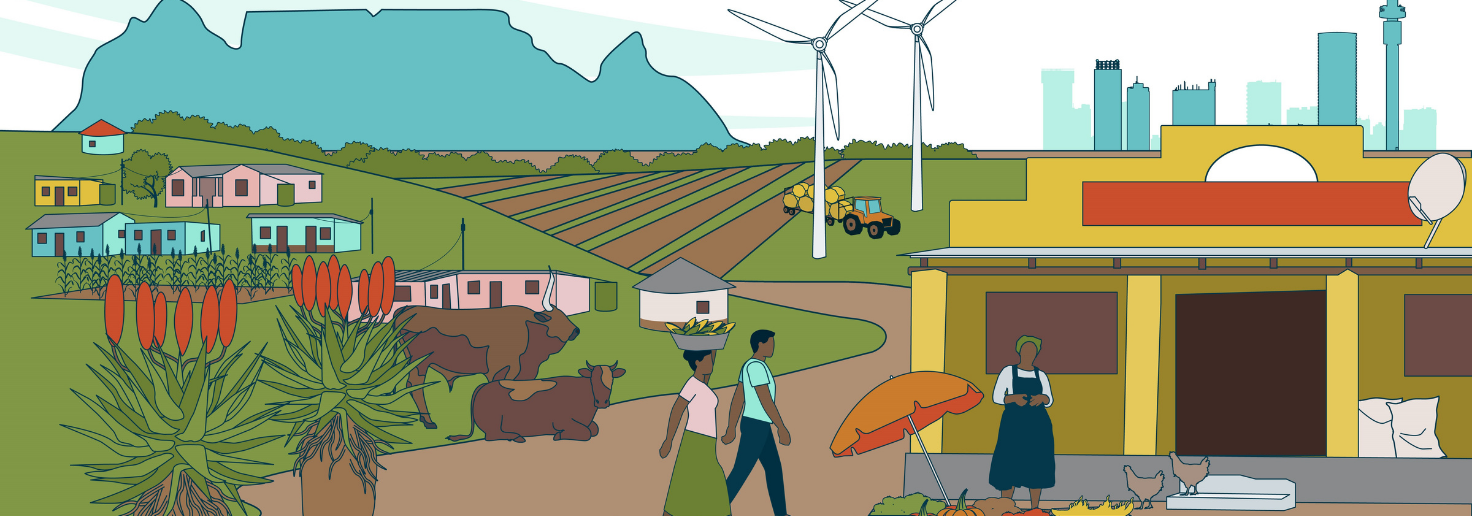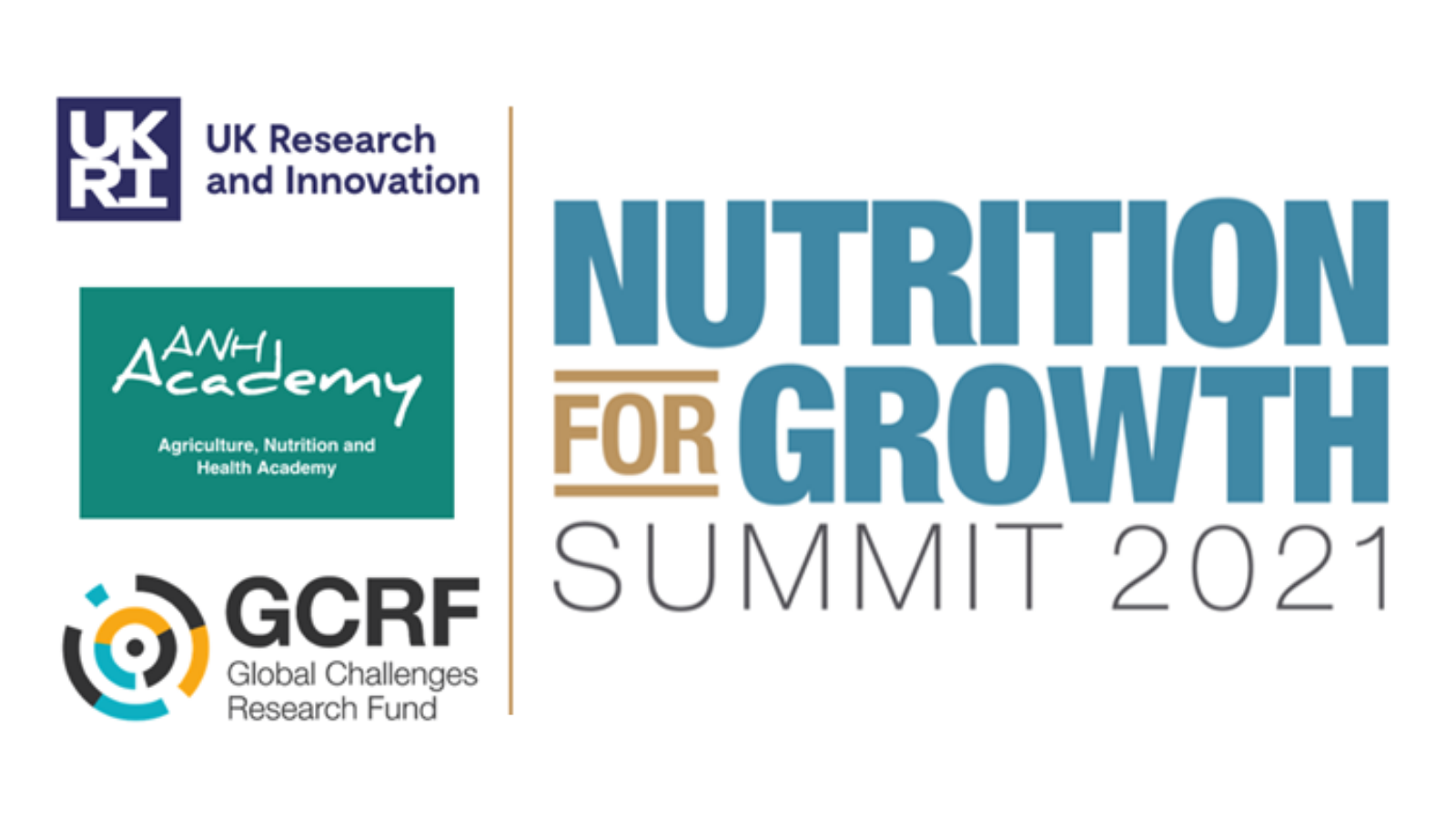
Worldwide, depression, anxiety and other common mental health issues impact people's health, quality of life and livelihoods. Research into the etiology, social and environmental determinants that drive mental health states has evolved in the last decades. Specifically, the relationship between mental health and livelihoods, food and nutrition security is an emerging interest globally. Researchers are beginning to link mental health and food and nutrition through both observational studies and intervention trials, but there is much more to learn. The ANH Academy is convening a Technical Working Group on Mental Health to advance knowledge and research practice in this area, with a particular focus on relevant tools, metrics and methods. During this webinar, three of its members will be presenting their pioneering research that asks crucial questions including: can treatment of maternal depression impact the health and nutrition of both mothers and children? When women's household food security is improved, what is the effect on mental health and quality of life? Please join us to hear from the presenters and contribute to the working group's upcoming activities.
This webinar will be moderated by Thalia Sparling, IMMANA, LSHTM, and speaker presentations will include:
- Erin Pfeiffer, Food for the Hungry and Bryan Cheng, Teachers College, Columbia University: Maternal Depression and Its Impact on Child Health and Nutrition: Highlights from a Randomized Controlled Trial in Uganda
A staggering one in five mothers experiences depression after birth in low- and middle-income countries (LMIC) where access to therapeutic interventions and mental health services is limited. Maternal depression is associated with poor child health, growth, and development, possibly due to reduced caregiver responsiveness, functioning, and uptake of caregiving practices. Addressing caregiver mental health is thus a critical component of improving health and nutrition of children. A recently completed randomized controlled trial in Uganda - implemented by Food for the Hungry, World Vision International, Columbia University, and Johns Hopkins University - studied the impact of maternal depression and its treatment with Interpersonal Psychotherapy for Groups (IPT-G) followed by 15 months of Care Group peer-to-peer health education. This seminal study found that women treated with IPT-G had a greater reduction of depression than in control mothers and significantly better adoption of behaviours. Learn more about these findings and the implications for the global development community.
-
Vicky Santoso, Northwestern University, IMMANA Fellow: Food security mediates the decrease in women’s depressive symptoms in a participatory nutrition-sensitive agroecology intervention in rural Tanzania
Even though the potential impact of nutrition-sensitive agriculture (NSA) intervention on household food security and the association between household’s security and women’s depression are well established, there has been little empirical evidence demonstrating the impact of NSA’s on women’s depression. In this talk, Vicky Santoso will discuss how an NSA intervention in Tanzania, the Singida Nutrition and Agroecology Project, reduced the odds of women’s probable depression by 43% and the mediating role of food insecurity in this impact. This finding highlights an opportunity for interdisciplinary work between mental health, nutrition, and agriculture fields to improve the quality of life for women in low-resource areas.
Note: To access this webinar, you will need to register and be logged in to your Zoom account. If you don't have a Zoom account, you can create one here for free.
Resources
- Presentation slides by Erin Pfeiffer and Bryan Cheng
- Presentation slides by Vicky Santoso
- Sub-Saharan Africa Caregiver Mental Health Knowledge Sharing Series (English version and French version)
- Caregiver Mental Health | Knowledge Sharing Series
- IDEAL Knowledge Sharing Series Learning Visual
- Participatory Integrated Curriculum Project
- Background literature:
- Ali et al. 2016: Validated Screening Tools for Common Mental Disorders in Low and Middle Income Countries: A Systematic Review
- Sparling et al. 2017: Nutrients and perinatal depression: a systematic review
- Sparling et al. 2016: The role of diet and nutritional supplementation in perinatal depression: a systematic review
- Adhikari et al. 2020: Parental depression and nutrition: findings from a cross-sectional household survey in Nepal
- Sparling et al. 2020: Depression among women of reproductive age in rural Bangladesh is linked to food security, diets and nutrition
Join the conversation on social media
Share quotes from the speakers, reflections, screenshots and more on social media. Use these hashtags and handles on Twitter:
-
ANH Academy: @anh_academy
- Vicky Santoso: @mvsantoso
- Global Mental Health Lab at Teachers College, Columbia University: @GMHLab_TC
- Food for the Hungry: @food4thehungry
- Northwestern University Research: @NorthwesternResearch








